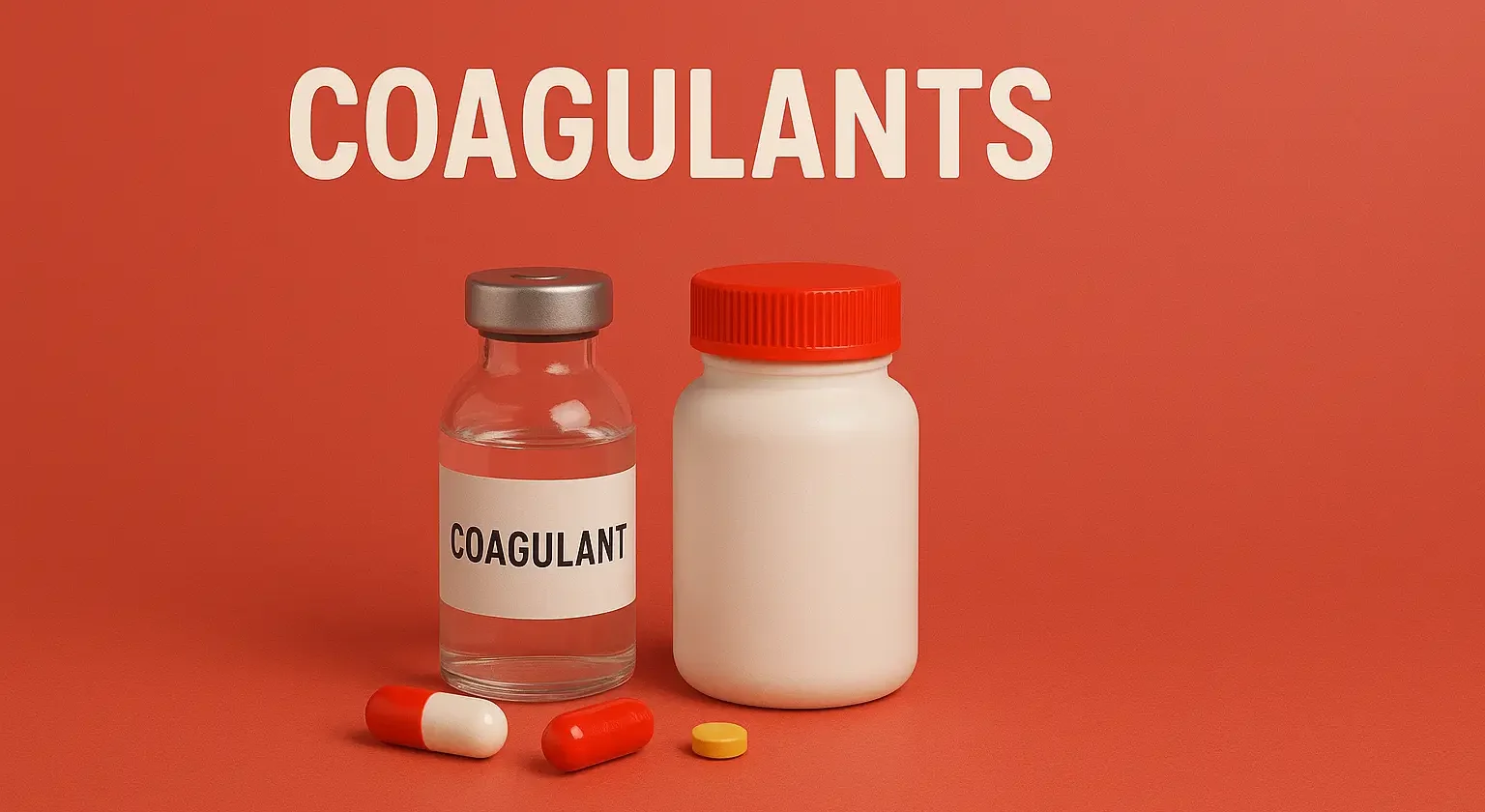Definition of Coagulants:
Coagulants are agents that promote clotting, used in conditions where there is a deficiency or dysfunction in the clotting cascade.
-
Vitamin K:
-
Prothrombin Complex Concentrates (PCC):
- Mechanism: Provide concentrated clotting factors II, VII, IX, and X.
- Use: Urgent reversal of warfarin anticoagulation, warfarin-induced bleeding.
- Side Effects: Thrombosis risk, allergic reactions.
-
Fresh Frozen Plasma (FFP):
- Mechanism: Contains all coagulation factors.
- Use: Multiple factor deficiencies, liver disease, massive transfusion protocols.
- Side Effects: Transfusion-related acute lung injury (TRALI), allergic reactions, volume overload.
-
Desmopressin (DDAVP):
- Mechanism: Releases von Willebrand factor and factor VIII from endothelial cells.
- Use: von Willebrand disease, mild hemophilia A.
- Side Effects: Hyponatremia, fluid retention.

